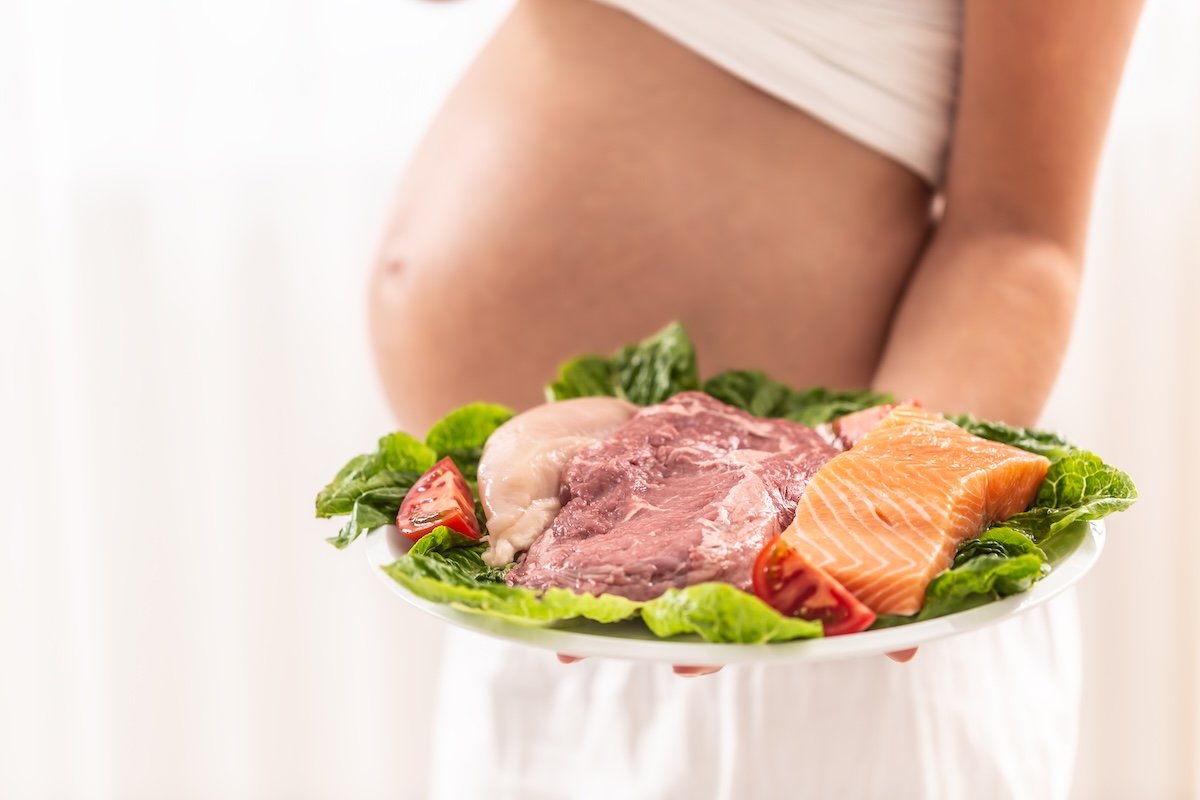During pregnancy, your body is working hard to support your baby’s growth and development. That’s why eating a healthy and safe diet is more important than ever. While many foods are full of nutrients that help your baby grow strong, some foods can carry harmful bacteria, parasites, or toxins that could hurt you or your baby.

Certain foods increase the risk of food poisoning or may contain substances that are not safe during pregnancy. These can lead to serious health problems like miscarriage, birth defects, or infections. By knowing what to avoid, you can protect your baby and feel more confident about your meals. Here are ten foods you should be careful with or avoid completely while you’re pregnant.
1. Raw Or Undercooked Meat
Eating raw or undercooked meat, including beef, pork, or poultry, can expose you to harmful bacteria like salmonella, E. coli, or listeria. These bacteria can lead to foodborne illness, which is riskier during pregnancy. Even a mild case can cause dehydration and fever, which can affect your baby. Always cook meat thoroughly, making sure there’s no pink inside. Use a food thermometer if needed. When eating out, ask for well-done meat, and avoid rare steaks or burgers.
2. Unpasteurized Dairy Products
Milk, cheese, or yogurt that hasn’t been pasteurized can carry listeria, a harmful bacteria that can cause a serious infection. Listeria infection during pregnancy can lead to miscarriage, stillbirth, or severe illness in newborns. Check the label when buying dairy products and make sure it says “pasteurized.” Avoid soft cheeses like Brie, Camembert, Roquefort, and some blue cheeses unless they are clearly labeled as made with pasteurized milk.
3. Raw Eggs Or Foods Made With Them
Raw eggs may carry salmonella, which can cause food poisoning. While it’s usually not dangerous for most healthy adults, it can be more serious during pregnancy and lead to severe vomiting, diarrhea, and fever. Avoid foods like raw cookie dough, homemade mayonnaise, hollandaise sauce, or soft scrambled eggs that are still runny. Choose pasteurized eggs or egg products when making recipes that call for raw eggs.
4. Certain Types Of Fish With High Mercury
Fish is generally healthy during pregnancy, but some types have high levels of mercury. Mercury can harm your baby’s developing brain and nervous system. Fish to avoid include shark, swordfish, king mackerel, and tilefish. Instead, choose fish that are lower in mercury, like salmon, sardines, cod, or canned light tuna. These options are rich in omega-3 fatty acids, which are good for your baby’s brain, but safer in moderation—about two servings per week.
5. Raw Or Undercooked Seafood
Raw seafood, including sushi made with raw fish, oysters, and clams, can carry harmful bacteria and parasites. These can make you very sick and may increase the risk of pregnancy complications. If you love sushi, try rolls made with cooked seafood or vegetables. Steamed shellfish, such as cooked shrimp or mussels, is also safe as long as it’s fully cooked and served hot.
6. Deli Meats And Hot Dogs (Unless Heated)
Cold deli meats, lunch meats, and hot dogs can sometimes be contaminated with listeria. This bacteria can grow even in refrigerated food and can cross the placenta, putting your baby at risk. To make these foods safe, heat them until steaming hot before eating. If you’re on the go, skip pre-packaged deli sandwiches or cold cuts that haven’t been reheated.
7. Unwashed Fruits And Vegetables
Fresh fruits and vegetables are great for you and your baby, but they need to be washed carefully. Unwashed produce can carry dirt, pesticides, or bacteria like toxoplasma, which may cause serious illness during pregnancy. Wash all fruits and vegetables under running water—even if you plan to peel them. Scrub produce with thick skin like melons or cucumbers before cutting them open.
8. Raw Sprouts
Sprouts like alfalfa, clover, radish, and mung beans may seem healthy, but they’re risky during pregnancy. They can carry salmonella or E. coli, and it’s hard to wash these bacteria off completely since sprouts are grown in warm, moist conditions—ideal for bacteria. Only eat sprouts if they’re thoroughly cooked. Avoid adding raw sprouts to salads or sandwiches while you’re pregnant.
9. Liver Or Liver-Based Products
Liver is high in vitamin A, which is good for your body in small amounts. But too much vitamin A during pregnancy can be harmful to your baby and may cause birth defects. It’s safest to avoid eating liver or liver products like pâté. Talk to your doctor about the right amount of vitamin A you should get from food and supplements during pregnancy.
10. Alcohol
Alcohol passes quickly through your bloodstream to your baby and can interfere with growth and brain development. Drinking alcohol during pregnancy increases the risk of miscarriage, stillbirth, and fetal alcohol spectrum disorders (FASDs), which can cause lifelong problems for your child. There is no known safe amount of alcohol during pregnancy. Experts recommend avoiding alcohol completely until after your baby is born.

